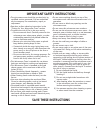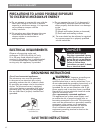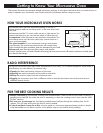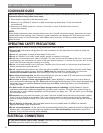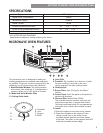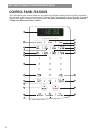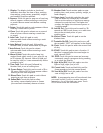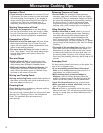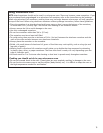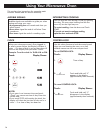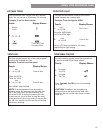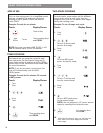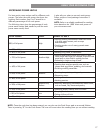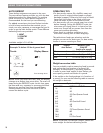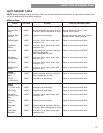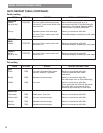
13
• Place the container in a glass bowl and add some water so that it covers the bottom of the container;
no more than 1⁄4 in. (.64 cm) high. This ensures even heating of the container bottom.
• Always remove the lid to avoid damage to the oven.
• Use only undamaged containers.
• Do not use containers taller than 3⁄4 in. (1.9 cm).
• The container must be at least half lled.
• To avoid arcing, there must be a minimum of 1⁄4 in. (.64 cm) between the aluminum container and the
walls of the oven and also between two aluminum containers.
• Always place the container on the turntable.
• Shield, with small pieces of aluminum foil, parts of food that may cook quickly; such as wing tips and
leg ends of poultry.
• Heating food in aluminum foil containers usually takes up to double the time compared to reheating
in plastic, glass, china, or paper containers. The time when food is ready will vary depending upon the
type of container used.
• Let food stand for 2 to 3 minutes after heating so that heat is spread evenly throughout container.
Cooking you should not do in your microwave oven
• Do not put canned foods in the oven. Closed glass jars may explode, resulting in damage to the oven.
• Do not use the microwave oven to sterilize objects (baby bottles, etc.). It is dicult to keep the oven at
the high temperature needed for sterilization.
Using Aluminum Foil
NOTE: Metal containers should not be used in a microwave oven. There are, however, some exceptions. If you
have purchased food prepackaged in an aluminum foil container, refer to the instructions on the package.
When using aluminum foil containers, cooking times may be longer because microwaves will only penetrate
the top of the food. When using aluminum containers without package instructions, follow these guidelines:
MICROWAVE COOKING TIPS



